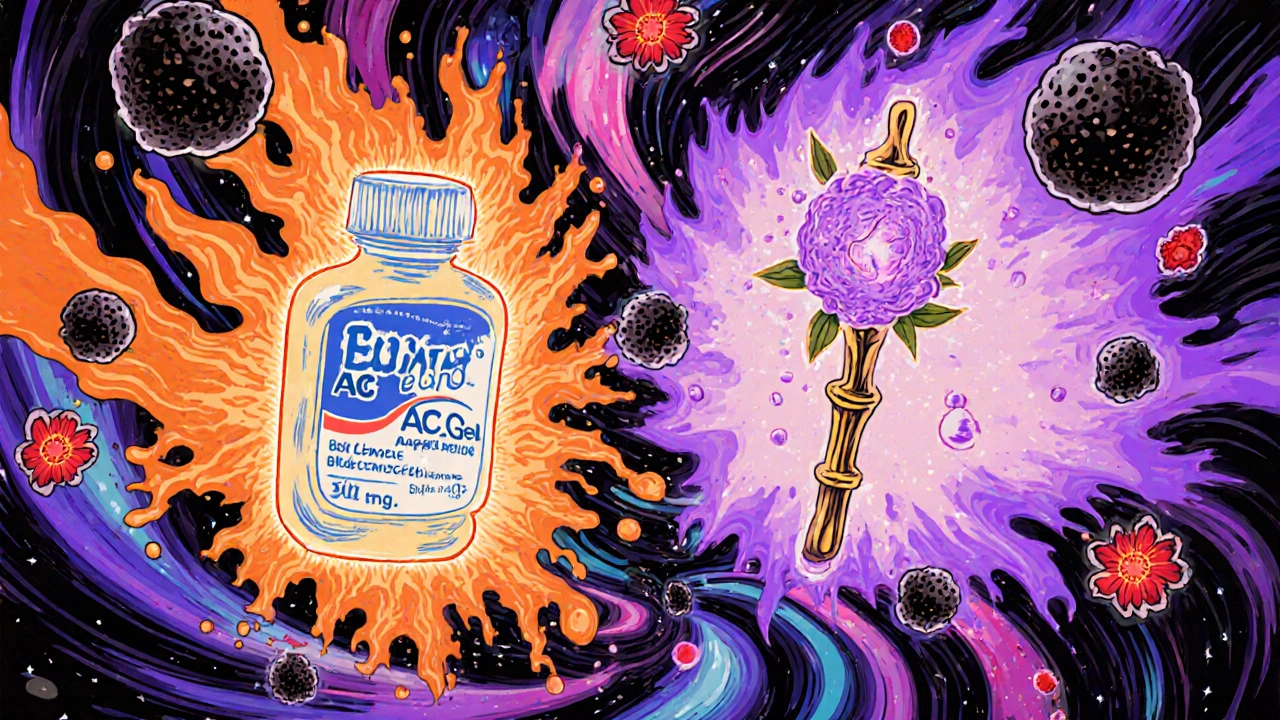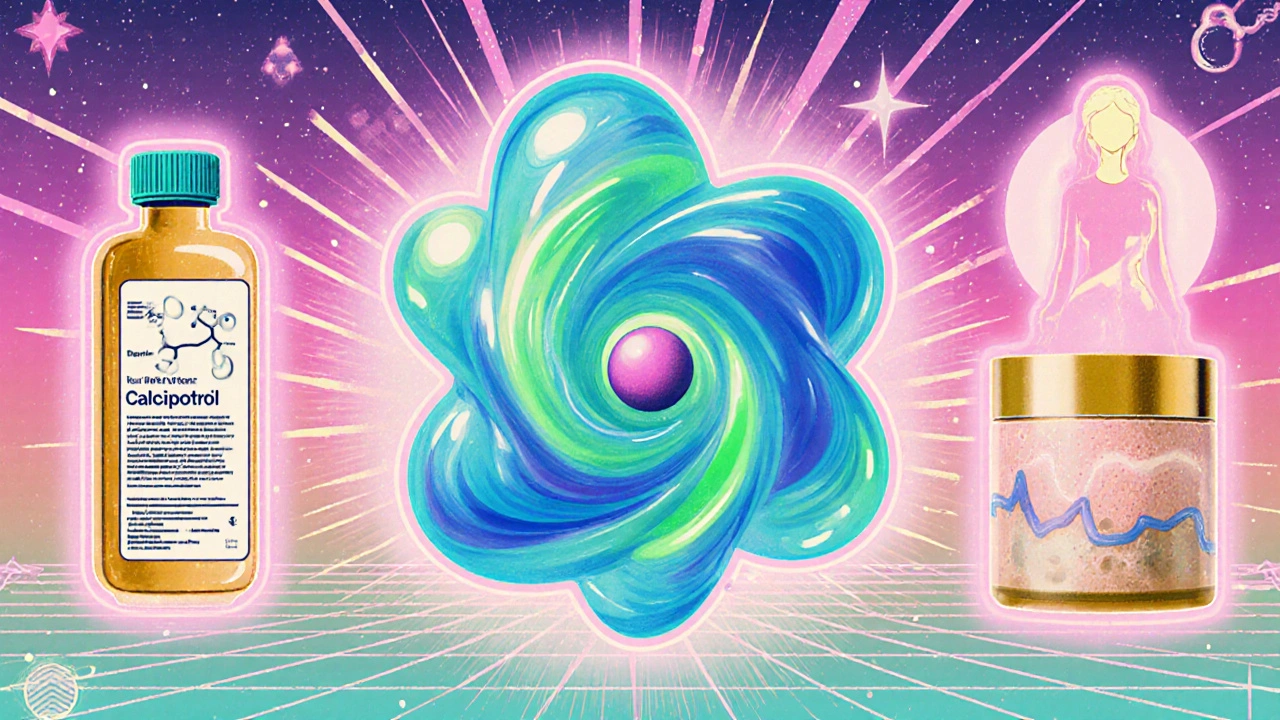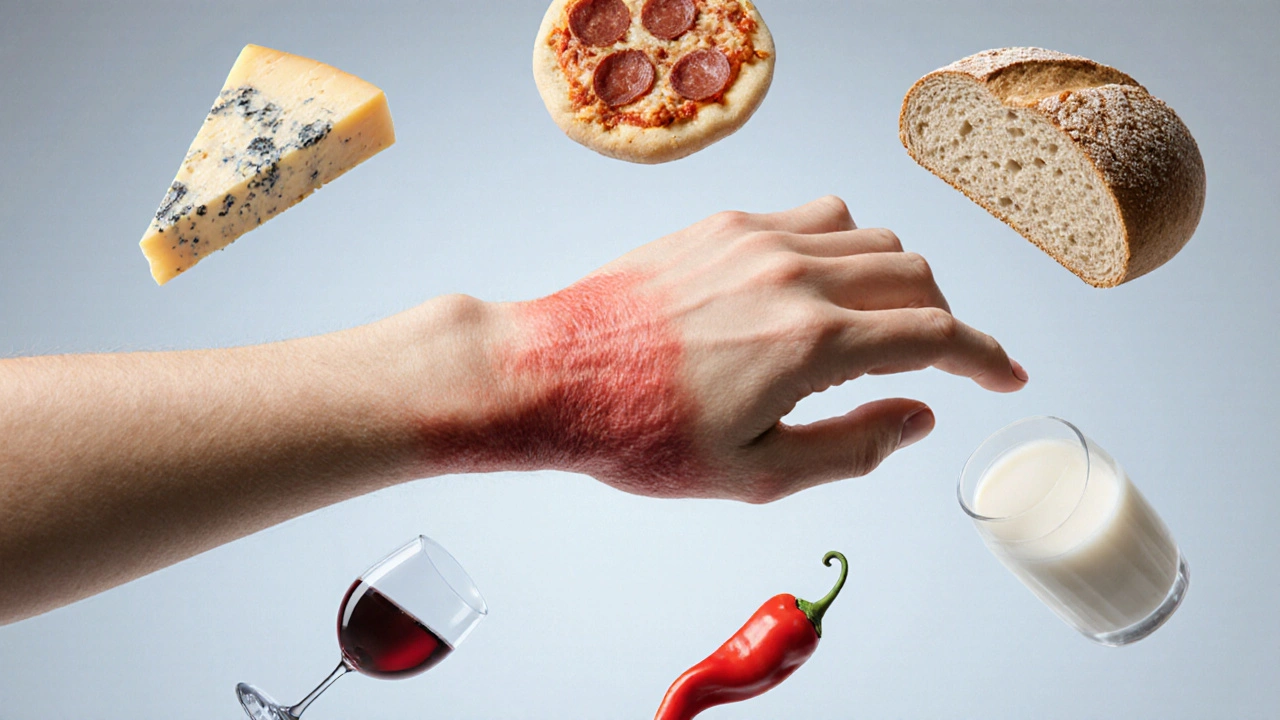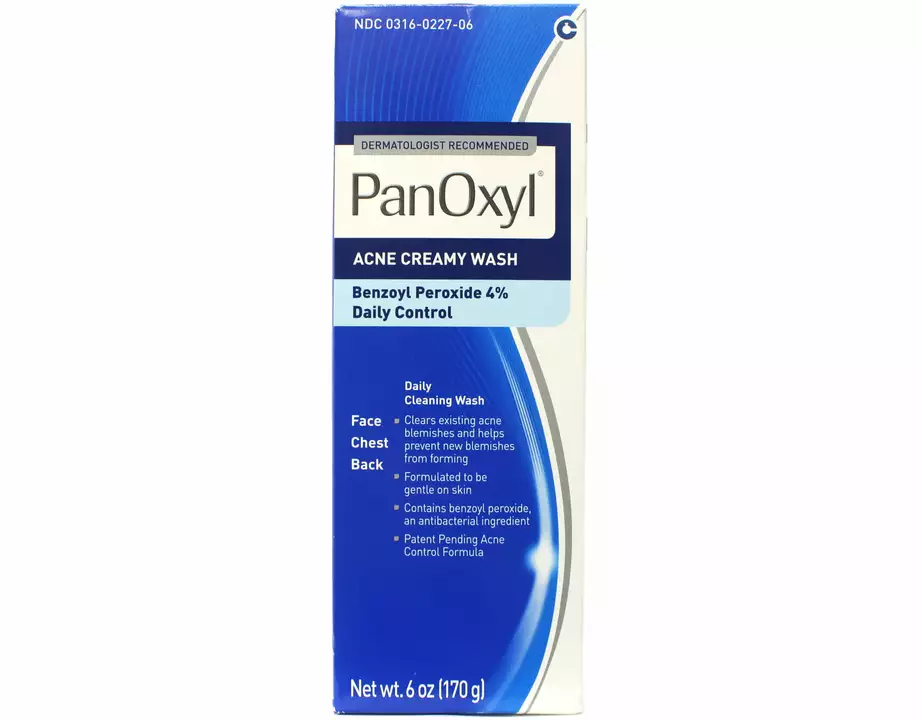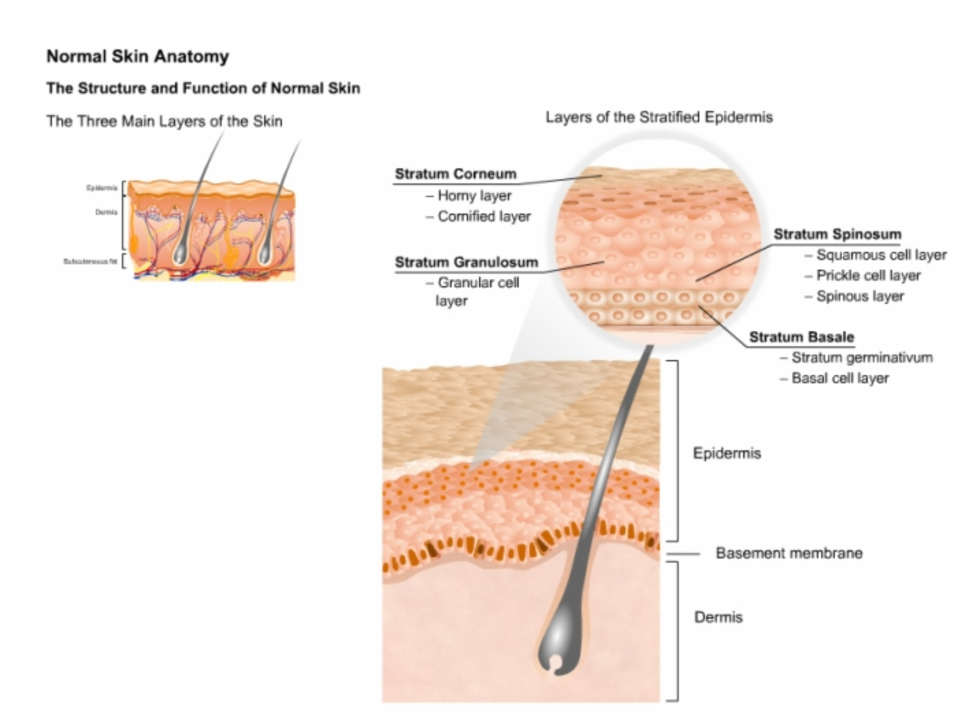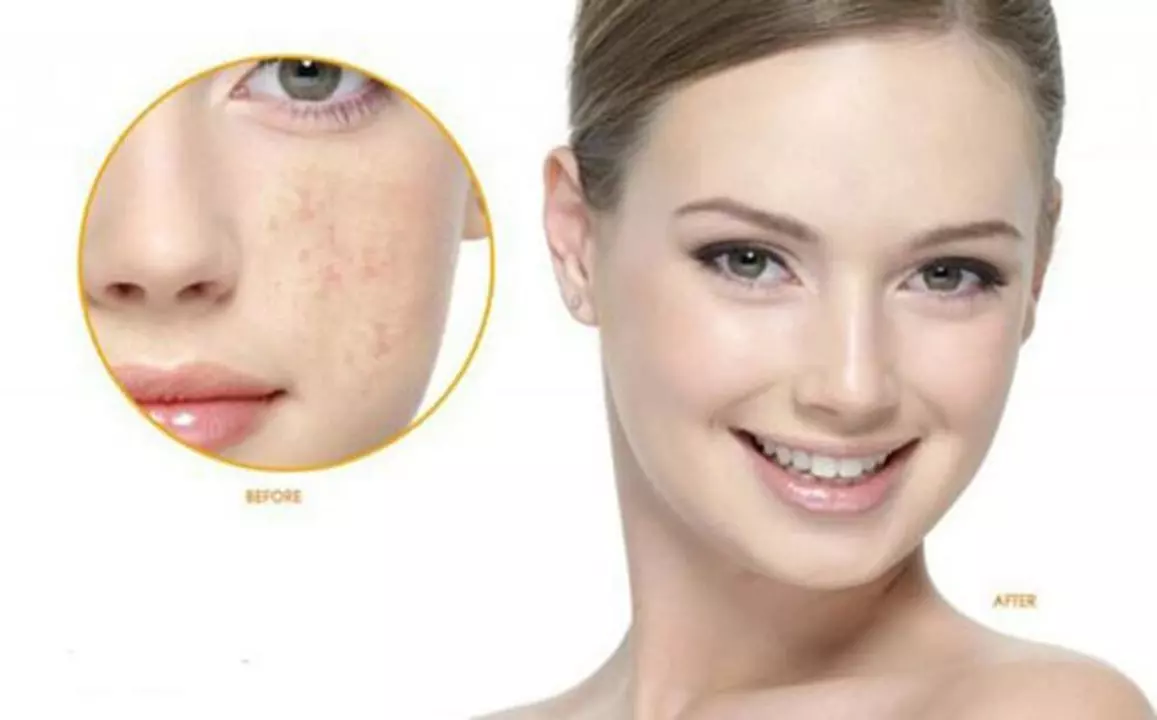Dermatology and Skin Health: Practical Tips for Acne, Eczema, and Melasma
Struggling with breakouts, itchy patches, or stubborn dark spots? You’re not alone. This page pulls together simple, useful advice so you can make safer choices for your skin right now.
Smart basics for acne and benzoyl peroxide use
Benzoyl peroxide works — it kills acne bacteria and reduces oil. Start with a low strength (2.5% or 5%) applied once daily to a small area to check for irritation. If your skin tolerates it, move to twice daily. Always moisturize: benzoyl peroxide can dry and flake skin, which makes people stop using it too soon.
Use a gentle, non-foaming cleanser and pick oil-free, non-comedogenic moisturizers and sunscreens. If you use other active ingredients (like retinoids or acids), don’t mix them directly with benzoyl peroxide without guidance — that combo can cause redness and peeling. If acne is painful, causing scarring, or not improving after 8–12 weeks, see a dermatologist for stronger options.
Eczema, infections, melasma — what to watch for and how to manage both
Eczema weakens the skin barrier, so bacteria and viruses can get in more easily. Signs of infection include increasing warmth, spreading redness, pus, or fever. If you see those, contact a healthcare provider — topical or oral antibiotics may be needed. To reduce infection risk, keep skin hydrated, avoid long hot showers, and pat dry instead of rubbing.
For eczema flares, use emollients liberally—apply right after bathing and carry a small tube for hands. When using medicated creams (like topical steroids), follow the exact duration your doctor gives you to avoid thinning skin. Trim nails and treat itching with cool compresses or an anti-itch cream to prevent breaks that invite germs.
Melasma shows as brown patches, often from hormones or sun. Sunscreen is the single most helpful step—choose broad-spectrum SPF 30+ and reapply every two hours outdoors. Topical options that help melasma include azelaic acid, chemical exfoliants, or prescription creams like hydroquinone or tretinoin; these should be used under medical supervision. If you have acne and melasma together, ask your provider for a plan that treats both without making one worse — some acne meds can irritate skin and darken melasma temporarily.
Small routine changes go a long way: avoid picking at skin, sleep on clean pillowcases, use fragrance-free products, and test new products on a small patch first. If you’re unsure whether a product is safe for sensitive or acne-prone skin, bring a photo to your next visit or consult a pharmacist or dermatologist.
Want more specifics on treatments or product picks? Check our articles on benzoyl peroxide, the link between skin infections and eczema, and managing melasma with acne for step-by-step tips tailored to each condition.
Benzac AC Gel vs Alternatives: What Works Best for Acne in 2025
Benzac AC Gel with benzoyl peroxide treats acne but often causes irritation. Discover gentler, more effective alternatives like adapalene, azelaic acid, and tea tree oil that work without bleaching clothes or drying out skin.
How Calcipotriol Is Shaping the Modern Cosmetic Landscape
Explore how calcipotriol, a vitamin D analog once limited to psoriasis treatment, is reshaping cosmetics with anti‑inflammatory and barrier‑boosting benefits, formulation tips, and regulatory insights.
Light Therapy Benefits for Plaque Psoriasis Relief
Discover how light therapy eases plaque psoriasis, its types, effectiveness, safety, and practical tips for using clinical or home phototherapy treatments.
How Diet Impacts Skin Itching: Foods to Avoid and Foods to Embrace
Learn how diet influences skin itching, discover foods that trigger itch and those that soothe it, and get a practical meal plan and checklist for lasting relief.
Anal Itching and Anal Fissures: Causes, Connection & Relief
Explore how anal itching and anal fissures are linked, uncover causes, symptoms, treatment options, and prevention tips to find lasting comfort.
Vitamin E: The Ultimate Anti-Aging Powerhouse for Youthful Skin
Discover how Vitamin E works as a top anti‑aging antioxidant, its science‑backed skin benefits, optimal dosage, and how it pairs with other nutrients for a youthful complexion.
Benzoyl Peroxide: A Dermatologist's Perspective
As a dermatologist, I've seen firsthand the benefits of benzoyl peroxide in treating various skin conditions, especially acne. It works by killing acne-causing bacteria and removing excess oils from the skin, leading to a clearer complexion. However, it's crucial to start with a low concentration and gradually increase it to avoid irritation. Remember to moisturize and use sunscreen to protect your skin while using benzoyl peroxide. Overall, it's a proven and effective solution for many people struggling with acne, but always consult a dermatologist before starting any new treatment.
The Connection Between Skin Infections and Eczema
As someone who has been researching skin infections and eczema, I've come to understand the strong connection between the two. It turns out that individuals with eczema are more prone to skin infections due to their compromised skin barrier. This allows bacteria, viruses, and fungi to easily invade the skin and cause infections. On the other hand, these infections can also worsen eczema symptoms, leading to a vicious cycle of inflammation and infection. It's crucial for those with eczema to take extra precautions and maintain good skincare habits to reduce the risk of infections.
Melasma and Acne: How to Manage Both Skin Conditions
As someone who has dealt with both melasma and acne, I know how challenging it can be to manage these skin conditions. I've learned that the key to success is understanding the causes and treatments for each condition. Melasma is often caused by hormonal changes and sun exposure, while acne is usually due to excess oil production and bacteria. To manage both, it's essential to use a gentle skincare routine, incorporate sun protection, and consider treatments like chemical peels or laser therapy. Remember, patience and consistency are crucial in achieving healthier and clearer skin.
